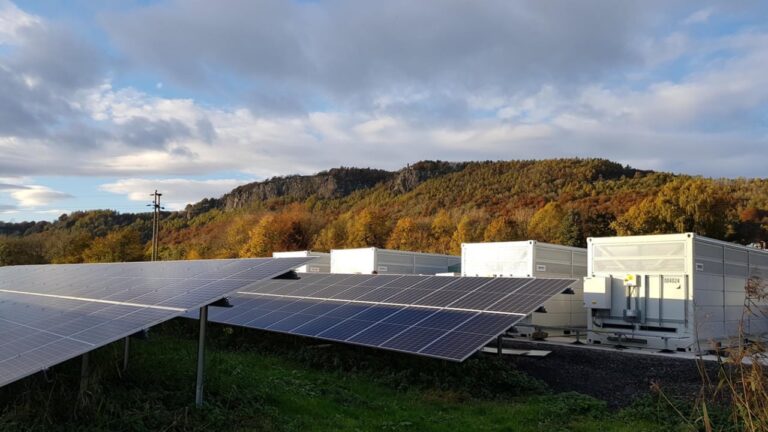Invinity Energy Systems has reached an agreement to develop a 20.7 MWH flow -battery system, the largest in the UK.
The British Ministry of Energy Security and Net Zero (Desnz) has given the London Stock Exchange-listed technology supplier and manufacturer De Go-Ahead about the project, which is the largest used by the company worldwide.
Invinity has started producing the US3 batteries that will include the Vanadium Flow Battery (VFB) system in its Motherwell factory in Scotland. The construction is expected to start in the second half of 2025. The effect is expected to start in 2026.
The project will be installed in southeastern England and will be the first commercial battery project in the UK that a LDES system with long-term battery energy (LDEs) will be placed on location together with generation.
Invinity expects to contain the project together with a PV array on solar energy that will be developed separately by a third party.
The project is being developed as part of a demonstration competition from Desnz. The longer Dreing Energy Storage (LODES) Made competition More than £ 69 million available in capital financing About two competition flows.
In 2023 it was announced that Invinity had received £ 11 million through the Lodes competition. The company said today that the total project costs are expected to be a maximum of £ 20 million, of which £ 7 £ 10 million will be financed by the competition from Desnz.
The financing will be included as a subsidy income by Invinity, and the remaining funds will be derived from the Kasring on the Balance of Invinity as part of a £ 57.4 million fundraising project completed in May 2024, supported by the National Wealth Fund and Institutional Investors.
With full ownership and control over the project, Invinity says that it will use its unlimited access to trade and company data from the site to fully optimize the battery to show the possibilities. It also receives the current income from the network balancing and energy trade services of the system.
Invinity has purchased a 25 -year lease on the project site via a vehicle with a special purpose. The lease can be extended by 15 years with the option, and the site has an existing approved 5.5 MW grid connection and planning for a solar -Array and battery energy storage system (BESS).
A small adjustment to the building permit is required, indicating that it is a VFB, not a lithium ion battery. An application to change the building permit has already been submitted, submitted in addition to a letter of support from Desnz, and Invinity said that the approval will be expected.
This is due to the technological characteristics of VFBs, which are not flammable and do not break down with use.
The development of the VFB project does not depend on the installation of the solar array.
CEO of Invinity Energy Systems Jonathan Marren noted that, prior to the opening of the LDES Cap and Floor Scheme, the VFB project, with the help of batteries made by Great Britain, “will act as an important reference site for the potential customers and partners of the long term”.


